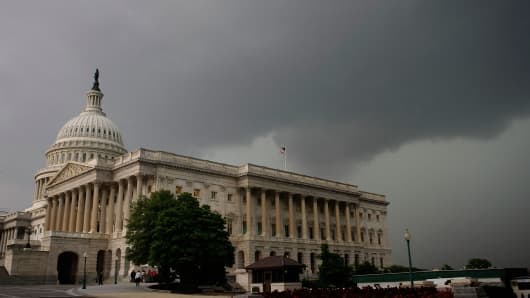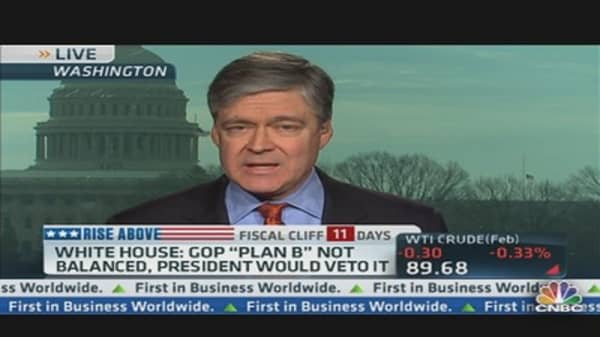With negotiations on a "fiscal cliff" deal at an impasse, Democrats and Republicans have turned toward sending political messages just before the Christmas holidays.
The Republican-controlled House has scheduled a vote later Thursday on what Speaker John Boehner calls "Plan B"—a bill to allow tax rates to rise back to Clinton-era levels only on family incomes above $1 million per year. (Read More: House to Vote on Plan B as Hopes for 'Cliff' Deal Fade .)
Because many Republicans oppose raising taxes on anyone, Boehner has added a vote on separate legislation to cut spending by $200 billion as a means of luring recalcitrant conservatives.
House Majority Leader Eric Cantor labeled the measures the only "concrete action" to avert the fiscal cliff and challenged Democrats to enact them.





